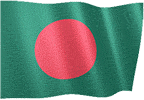Beginning with space exploration in early fifties, space sciences and the technologies thus developed have made inroads in almost every sphere of human life. Today, space sciences and technologies are being used for not only exploring the earth's environment and pouter space but in a number of other applications. Reliable global communication through satellites, accurate weather forecasts through meteorological satellites, TV broadcasts and educational-programmes, remote sensing of earth's resources, satellite navigation, satellite geodesy and satellite based disaster warning systems are some of the applications that play a crucial role in our day to day life. Space platforms such as balloons, rockets and satellites or deep space probes are being used to probe the oceans, earth's near environment, upper atmosphere, ionosphere, magnetosphere, solar system and beyond.
Thus space sciences, technology and applications are inter-disciplinary. There is a need therefore for trained manpower in the discipline of space sciences in every part of the globe so that various space related activities can be managed harmoniously. In view of this, the Centre has initiated an educational programme in the form of Post Graduate course in space and atmospheric science at Physical Research Laboratory (PRL). The PRL is a premier centre of space sciences in India. After having its modest beginning in space and atmospheric sciences in early fifties, the laboratoty has now diversified its activities in a number of disciplines, such as ionospheric physics, atmospheric physics, astronomy, astrophysics, etc. Over the years, the laboratory has developed very sophisticated ground based as well as space-borne experiments, a number of which were built for the first time in the world. Some of these include, rocker-borne Langmuir probe, electric field probe, rubidium vapor and proton precession magnometers, vapor release experiments, mass spectrometers ground based photometers, interferometers, spectrometers and all sky imagers, lidars, gas chromatographs, laboratory astrophysics experiments, ionosondes, infrared telescopes, etc. The laboratory in having a very active doctoral and post-doctoral programmes.
All Educational Programmes are conducted in English. In principle, students are expected to be sufficiently fluent in English, but facilities for improving their English Languages skills are made available to those students who want to avail of this facility, upon their arrival on campus. The courses are taught in classroom environments with the use of modern teaching methods and tools, and also include multimedia tutorials for self - study. Practical are given in the laboratories and skill development environments of the DOS institutions.
For each courses there are course directors who overall guides and frame the programme. There are course coordinators who assist for day to day educational programme.
- Eligibility
- Course Content
- Selection of Candidates
- Faculty
- Language
- Course Director
- Course Expenses
- Physical Research Laboratory (Host Institute for Space & Atmospheric Sciences)
- Space & Atmospheric Science Courses conducted by the Centre



















